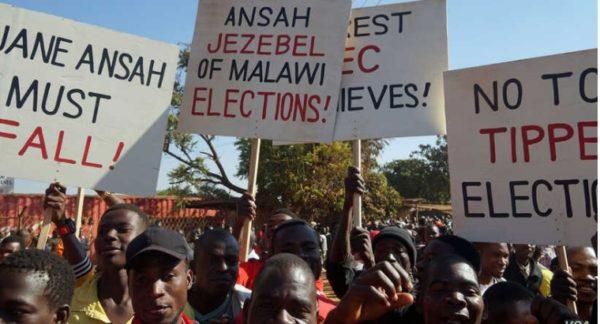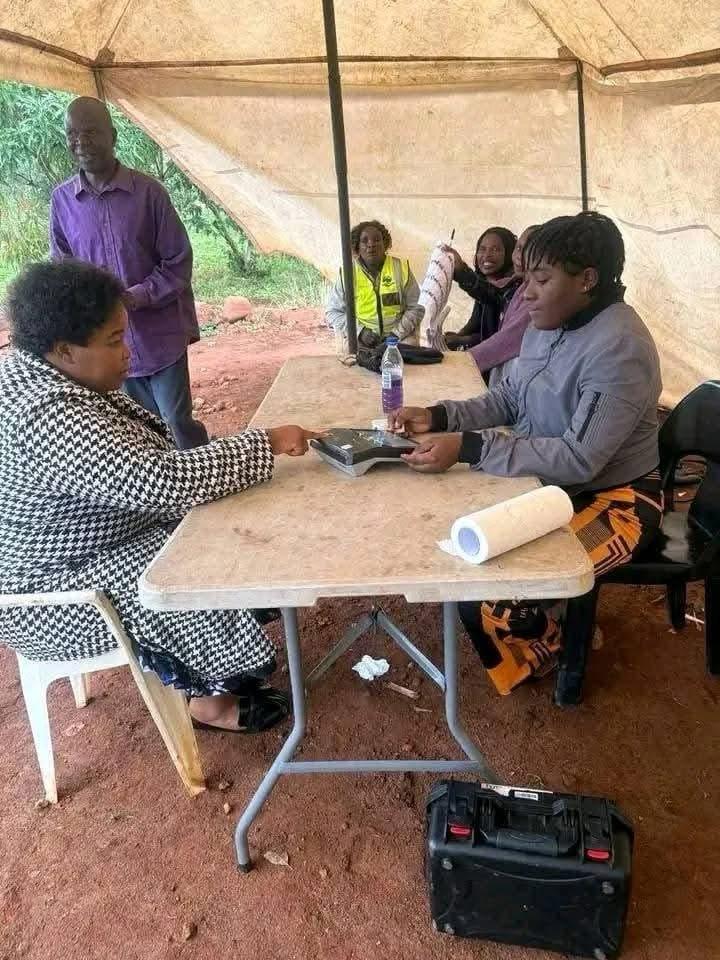For a party with a proven track record of electoral theft, a tamper-proof modern voting system must feel like a trap. To the Democratic Progressive Party (DPP), the Smartmatic biometric voter registration and verification system isn’t just new technology—it’s an existential threat.
This is a system immune to Tipp-Ex tampering, resistant to ghost voter manipulation, and designed with transparency at its core. It’s everything the DPP does not want in an electoral process.
For a party that often fronts individuals lacking even basic literacy skills in high-level strategic roles, it’s hardly surprising that they are bewildered by how a credible election could be delivered through modern-day digital tools. But their opposition to Smartmatic goes beyond ignorance; it is calculated, and it reeks of paranoia.
The DPP’s campaign against Smartmatic has become a circus, with Bon Kalindo—an unrepentant political opportunist—leading the charge.
Kalindo has built a career out of being loud, not learned. Entrusting him with a national-level technical issue is akin to appointing a witch doctor to head the Ministry of Health. His limited understanding of technology means he cannot critique Smartmatic on any factual basis. He speaks not from knowledge, but from the scripts handed to him by his benefactors at Page House and beyond.
And he is not alone. The party’s leadership is overrun by figures whose academic credentials are either non-existent or outright fraudulent.
Central region Vice President Alfred Gangata is currently battling in court over a fake MSCE certificate. Pythius Hiwa, popularly known as Norman Paulosi Chisale, used a relative’s JCE to enlist in the Malawi Defence Force. These are the minds orchestrating DPP’s assault on Smartmatic. These are the individuals who want to reverse the gains of Malawi’s electoral reforms.
Should Malawi’s electoral process really be held hostage by three political mercenaries whose grasp of digital systems barely extends beyond the power button?
And then there is the generational problem. The old men of the DPP National Executive Committee (NEC), many of them octogenarians, had their first encounter with a computer long after retirement. These are men formed in the analogue world, now trying to lead in a digital one.
It’s not about ageism and we are not here to scorn at old age; it’s about adaptability and competence. Five DPP NEC members have a collective age exceeding 500 years. Their resistance to Smartmatic isn’t ideological—its technological illiteracy masked as political opposition.


DPP’s preference for the old manual voter registration system is rooted in strategic convenience. Manual systems are easy to manipulate. That is how they stole the 2014 election from Joyce Banda. And that is how they rigged the 2019 polls—resulting in the infamous “Tipp-Ex election.” It was an electoral travesty that shocked even the African continent. Ballots were altered, result sheets rewritten, and whole constituencies reversed overnight.
The Malawi Constitutional Court didn’t just annul the 2019 elections on a technicality; it cited massive, systematic irregularities. The DPP didn’t merely exploit loopholes—they created them. And this is the system they want to return to.
But here is the ultimate revelation: DPP’s recent fears about Smartmatic have less to do with electoral integrity and more to do with their own failed scheme. It has now emerged, according to multiple reliable sources, that the DPP carried out its own unauthorized voter registration exercise using stolen National Registration Bureau (NRB) equipment. Over a million people were allegedly registered in this shadow process with the intent of inflating the DPP vote bank in their strongholds.
The twist? These phantom voters were not captured in the Smartmatic system. Now, with biometric verification mandatory in the 2025 election, DPP’s plan is unraveling. Smartmatic will not verify ghosts. The rigging infrastructure, lovingly built over years, cannot pass through this digital filter.
It explains why DPP is sponsoring bogus civil society groups to hold media briefings every other day, falsely claiming that Smartmatic will be used for actual voting and ballot counting—an outright lie. MEC, electoral experts, and international observers have all confirmed: the system is used for registration and result transmission. Voting remains manual, using paper ballots.
These deliberate distortions speak volumes. If DPP had legitimate concerns about Smartmatic, they would have presented evidence-based arguments during the competitive bidding process. Instead, they supported the very same system in Parliament, only to make an about-turn once their illegal registration scheme failed.
DPP is not worried about Smartmatic because it’s flawed—they fear it because it works. A reliable digital system threatens their last surviving political strategy: rigging.
What is worrying, however, is the campaign of deception they’ve mounted. They have falsely linked Smartmatic to electoral failures in Indonesia—a country where Smartmatic was not even involved. They claim the system has been discredited in the U.S., ignoring the fact that Smartmatic’s role in U.S. elections is minimal and uncontroversial, and that courts have found no wrongdoing in their operations.
This sustained campaign of lies raises an uncomfortable question: if DPP and its civil society allies truly believe Smartmatic is flawed, why have they not presented a single credible technical analysis? Why rely on hysteria, nudity street parade threats by Mary Navicha, and disinformation?
Malawi deserves better.

Mary Navicha registering for voting on a Smartmatic gadget
Technology is not the enemy of democracy; it is its best hope. The Smartmatic system represents a leap forward in protecting the voter’s voice. It ensures only eligible, biometrically verified voters participate. It logs and transmits results in real-time, reducing the window for tampering.
DPP’s fight against Smartmatic is not about transparency—it is about survival. In 2025, they face a different electoral terrain, one they can’t bend. Their traditional base has shrunk. Their voter registration schemes have failed. And now, the only option left is to discredit the system that threatens to expose them.
Let us be clear: The push to abandon Smartmatic is not about patriotism or sovereignty. It is about sabotage. It is about fear of free and fair elections.
Malawians must not be fooled. Those who fear clean elections are usually those who cannot win them. And a party with a documented record of rigging should be the last to lecture the nation on electoral integrity.
Let us remember: a thief always thinks everyone else is a thief.
But this time, technology will be the lock on the door—and the thief will be caught outside.








